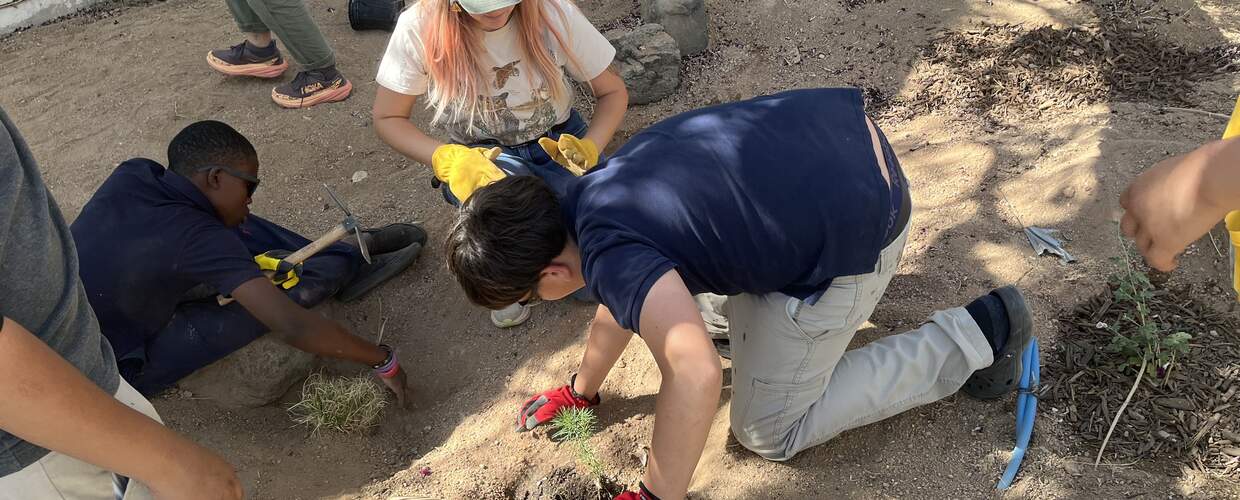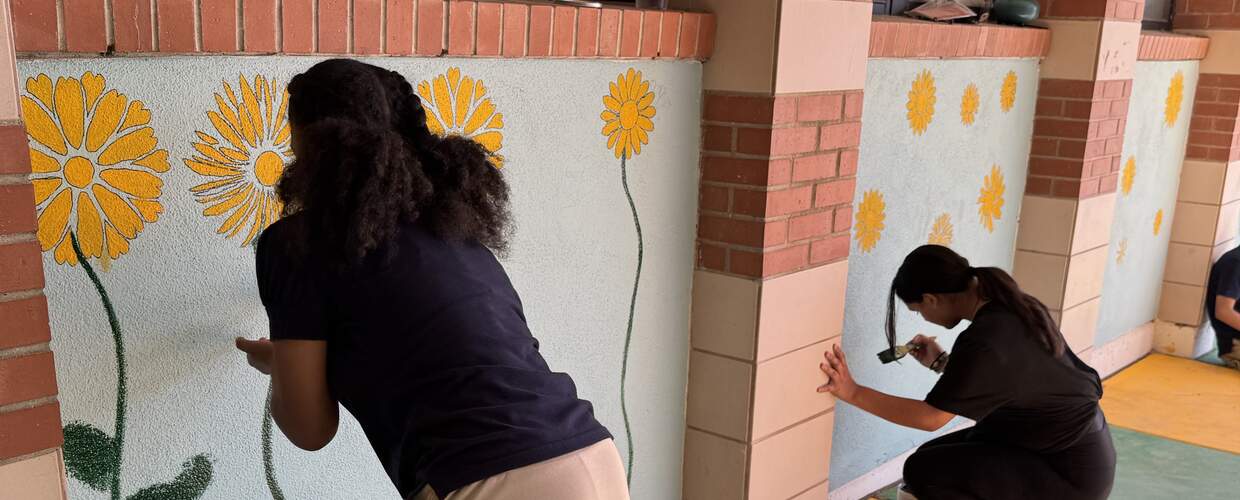Like many other resources, shade is a privilege.
Underserved neighborhoods often have fewer trees and vegetation, meaning less shade and hotter streets. WMG is working to remedy this by not only designing and installing cooling rain gardens, but inspiring the next generation to care for the places they call home.
Our Community Conservation team recently worked with 7th and 8th graders at Roberts Naylor K-8 school in the Alvernon Heights neighborhoods of Tucson. The school has one of the district’s largest immigrant and refugee populations, with students and their families coming from a variety of backgrounds and experiences.
WMG worked with science teacher Andrea Shirley to design an interactive 6-week program that balanced classroom education and hand-on learning as students designed and installed their own rain garden at the school. Students learned how to figure out where rain will flow and pool, the best places to plant trees, what types of native trees and plants will thrive, and how to maintain the rain garden as it matures.
“We live in the most diverse desert ecosystem in the world but we’ve got so much concrete,” Shirley said. “It really gave them an opportunity to learn about and re-establish the natural flora.”
The work at Roberts Naylor was made possible through Grow Tucson, a USDA Forest Service-funded project launched in 2024 to increase climate resilience in Tucson’s highest need neighborhoods. Rain basins also have benefits beyond reducing the heat island effect, including attracting more wildlife and pollinators, reducing noise, and beautifying neighborhoods to improve overall wellbeing and mental health.
“It's a great opportunity to educate our community as a whole because it starts with our kids,” Andrea said. “I know all my students went home and were telling their parents about different plants and the bugs they were learning about, so it was a really good opportunity to spread that knowledge.”
The rain garden project was an opportunity to go beyond the textbook and engage students in learning about the local landscape and its rich history of water stewardship, and encouraging them to be a part of caring for its future.
“I really saw myself in those kids,” said WMG’s Community Engagement and Education Project Manager Joselyn Aguilar, who grew up in the border towns of Ambos Nogales. “We’re helping people from all over the world learn about the place they now call home.”

